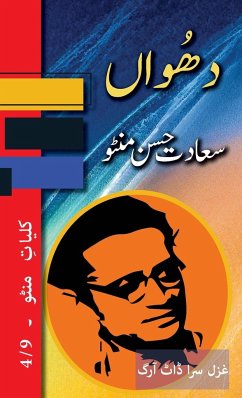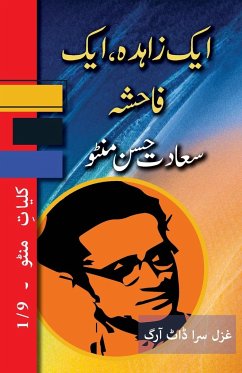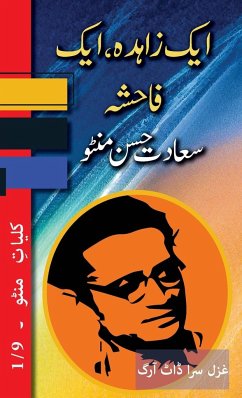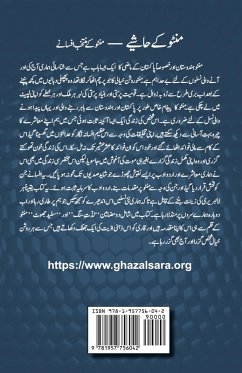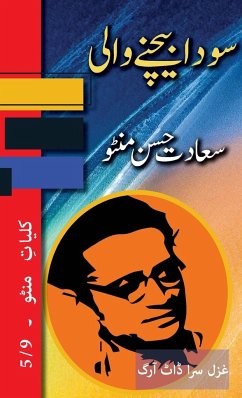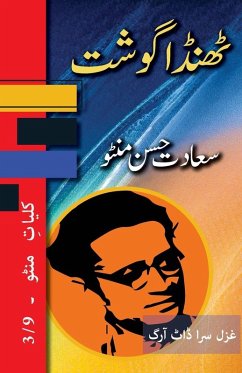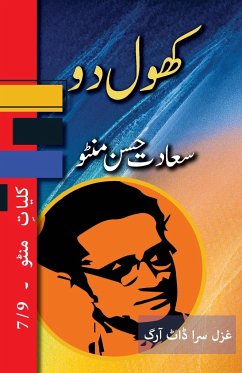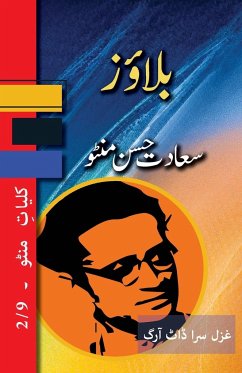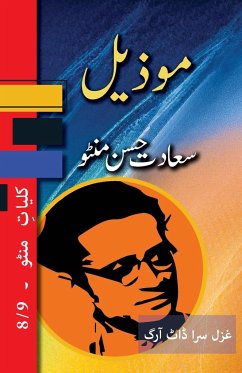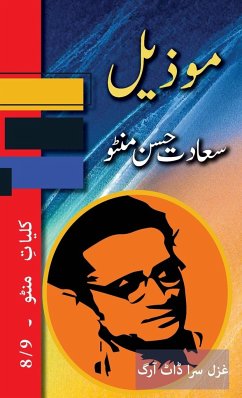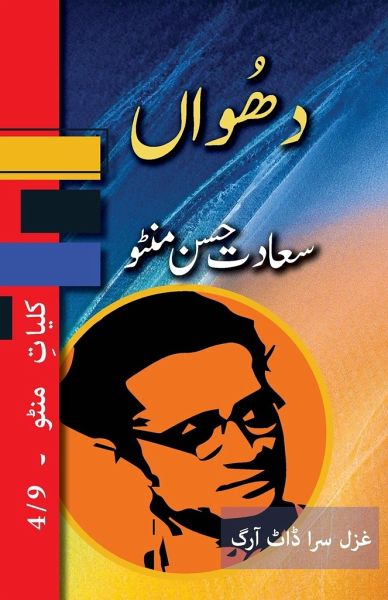
Dhuan
Kulliyat e Manto 4/9

PAYBACK Punkte
9 °P sammeln!
This book is part four of complete compilation of all short stories written by Saadat Hasan Manto. The series contains 9 titles in total. Manto is widely considered to be the greatest Urdu short story writer. Manto is famous for his works in Urdu fiction at the time of the partition of India and Pakistan in the mid-1900s. The knowledge of his ideology and work will be vastly important to the new generation. Manto was a bearer of liberal ideology. He wrote short stories about prostitutes and other taboos, and he touched subjects that stirred many controversies. The people in power saw their own...
This book is part four of complete compilation of all short stories written by Saadat Hasan Manto. The series contains 9 titles in total. Manto is widely considered to be the greatest Urdu short story writer. Manto is famous for his works in Urdu fiction at the time of the partition of India and Pakistan in the mid-1900s. The knowledge of his ideology and work will be vastly important to the new generation. Manto was a bearer of liberal ideology. He wrote short stories about prostitutes and other taboos, and he touched subjects that stirred many controversies. The people in power saw their own ugly faces reflected back to them in his fiction. They dragged him into the courts of law. Publishers took his rightful profits away from him and bought his works in return for a mere bottle of alcohol. He led a sad and angry life, and he left this world without enjoying any benefit from his immense creativity. Still, even in his short life he left a mark on Urdu and Hindi literature that will last for generations to come. Saadat Hasan Manto's works have been both celebrated and criticized for their bold, realistic and often controversial portrayal of society. On the one hand, his stories are known for their powerful and raw depiction of human nature, which challenged the conventions of the time and offered a unique insight into the lives of ordinary people. Manto's work often focused on the lives of the poor and marginalized members of society, and he portrayed them with great empathy and sensitivity. His stories depicted the harsh realities of poverty, violence, and prostitution, and shed light on the suffering of those who were often ignored by mainstream society. However, Manto's writing also faced criticism for its explicit content and language. His frank portrayal of sensitive issues like sex, violence, and the human body often made his work controversial and led to censorship. Some critics also found his writing style to be too harsh and critical, and felt that his work lacked a positive outlook on life. Despite these criticisms, Manto's work is widely regarded as some of the most significant and influential writing in Urdu literature. His unique and bold writing style challenged the conventions of the time and paved the way for a new generation of writers who were unafraid to tackle taboo subjects in their writing. Manto's stories continue to be celebrated and studied today, and his legacy as one of the greatest writers in the Urdu language remains secure.





